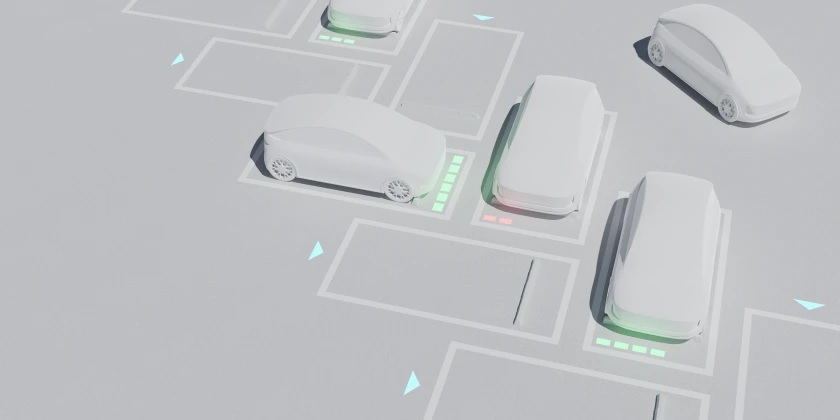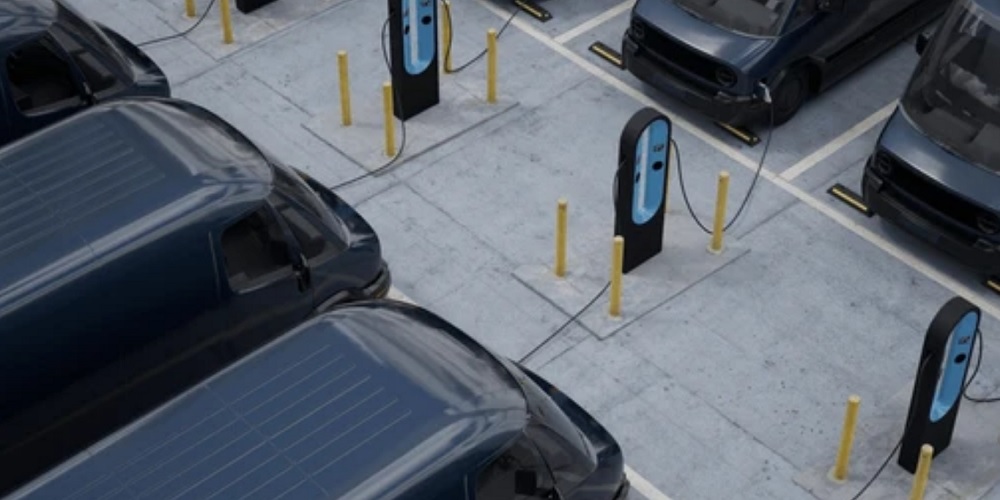The role of EV charging network in making your fleets and city smarter

Electric vehicles (EVs) help create eco-friendly transportation for public entities and private companies. Combined with other technology, EVs and charging networks help communities make smarter cities.
The NIST Smart Cities and Communities Framework provides guidance for communities on planning, developing, and implementing smart solutions by examining the underlying infrastructure that must be in place. The Framework highlights six core components, including transportation. It also emphasizes the need for change and cooperation across public and private sectors. Such change is essential to realizing the benefits of evolving technology and must occur at the city level.
Change has to happen in cities to realize the benefits
Cities account for 50% of the world’s population but produce more than 70% of annual carbon emissions. For city planners to be at the forefront of sustainability and impact carbon emissions, smart cities require an efficient, accessible EV charging infrastructure. Without it, the adoption of EVs is limited.
The benefits of an EV charging network include the following.
Optimized charging
EV charging networks help drivers and fleet managers plan routes and usage more efficiently. Incorporating data with smart city technology can provide real-time information about the location, availability, and types of charging stations along driver routes, minimizing detours and ensuring that charging stops are available when needed.
Drivers can easily locate and reserve charging stations to avoid wait times, while network operators can adjust power loads at stations to prevent overload.
Fleet and asset management
Fleet drivers can match charging infrastructure to demand to optimize fleet utilization. Fleet managers can monitor usage, driving habits, and other analytics to improve operations.
Smarter city planning
City planners can leverage data insights from connected vehicles for traffic management, infrastructure improvements, and emission-reduction targets. An EV charging network can be a catalyst for smart city transformation.
Charging data can help shape smart city policies
According to the Department of Energy, plug-in vehicles and other tech could increase the load on power grids by up to 38% by 2050. Few of today’s power grids are built to handle the increased loads that EVs require at scale without significant upgrades.
The key to realizing all these benefits for smart cities lies in the data. Data from EV charging stations, coupled with other smart city technology, can help create intelligent networks.
Demand response
Smart charging stations equipped with demand-response capabilities enable utilities to manage the energy load during peak usage times. By incentivizing users to charge during off-peak hours, utilities can balance electricity demand and reduce the strain on the power grid.
Load management
Intelligent charging networks can dynamically adjust the power distribution among charging stations based on real-time demand and grid conditions. This load management ensures efficient energy utilization and prevents overloading, contributing to grid stability.
Managed charging marries a vehicle’s energy needs and current grid capacity to the ability to adjust power levels or shift charging sessions.
Predictive maintenance
More than 21% of public charging stations in the U.S. are not working, and that number continues to grow. Through data analysis, smart charging networks can predict the maintenance needs of charging stations. A proactive approach helps prevent downtime and ensures that charging stations remain operational to minimize disruptions for drivers and fleet operators.
Remote monitoring
Real-time monitoring of charging stations enables operators to detect and address issues promptly. It ensures that any technical problems or outages are resolved faster, maintaining a reliable and uninterrupted charging experience.
Renewable energy sources
EV charging stations and smart cities need to work together in this intelligent network. For example, smart charging networks can align charging patterns with the availability of renewable energy sources to optimize the utilization of clean energy and further reduce reliance on fossil fuels.
Vehicle-to-grid (V2G) technology
V2G technology enables bi-directional energy flow between EVs and the electric grid. When parked, EVs can store energy and release it back to the grid during peak demand periods. This supports grid stability and offers an additional revenue stream for EV owners through energy trading. However, optimizing the process requires smart city technology and integrated data.
Urban planning to encourage EV adoption
Much of the current public EV charging infrastructure is located in high-income areas. Increasing adoption of EVs will require a charging infrastructure with equitable access for all areas of the city, along with the development of rural EV corridors. Cities can eliminate barriers to EV adoption and encourage inclusivity.
Integrating EV charging infrastructure with public transportation hubs can encourage the use of EVs for commuters and travelers, making them accessible and easy to use. At the same time, the larger the community presence for EV charging infrastructure, the more mainstream EV use becomes. Smart city planning can help distribute public charging stations to help alleviate “range anxiety”—the fear of a drained battery and being unable to find a charging station.
Building the EV charging network in smart cities
Sourcewell can help communities build an EV charging infrastructure as part of smart city development. Cooperative purchasing agreements create bulk buying power for government entities of any size.
These competitively solicited contracts for EVs, charging infrastructure, and accessories can accelerate the procurement process, saving time and money.
Sourcewell awards contracts in electric vehicle supply equipment. These contracts assure that government entities can take the first step in creating the infrastructure to support green initiatives. See how Sourcewell can save you time and money while getting the fleet equipment that you need already on contract.


